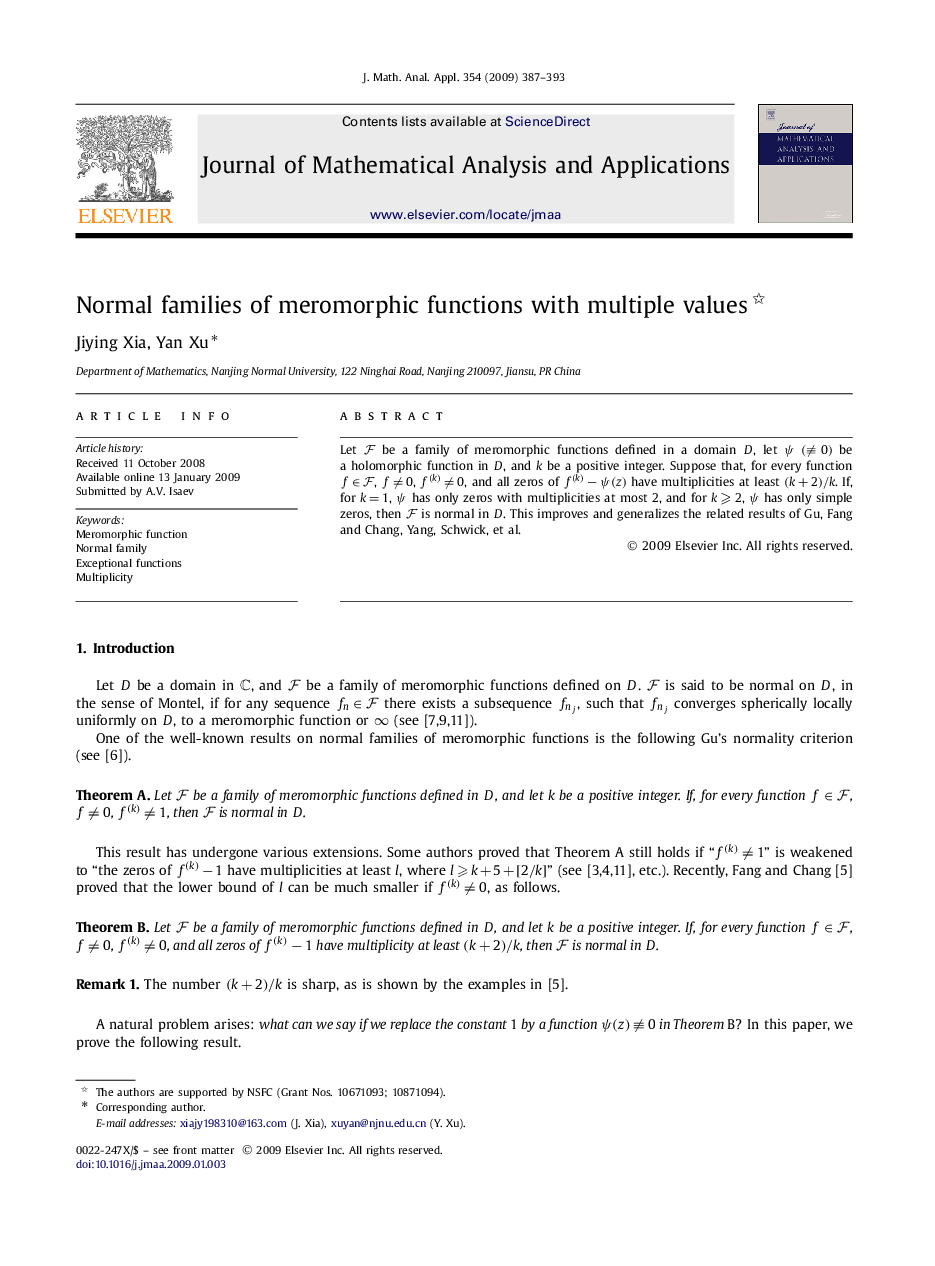| Article ID | Journal | Published Year | Pages | File Type |
|---|---|---|---|---|
| 4620013 | Journal of Mathematical Analysis and Applications | 2009 | 7 Pages |
Abstract
Let F be a family of meromorphic functions defined in a domain D, let ψ (≢0) be a holomorphic function in D, and k be a positive integer. Suppose that, for every function f∈F, f≠0, f(k)≠0, and all zeros of f(k)−ψ(z) have multiplicities at least (k+2)/k. If, for k=1, ψ has only zeros with multiplicities at most 2, and for k⩾2, ψ has only simple zeros, then F is normal in D. This improves and generalizes the related results of Gu, Fang and Chang, Yang, Schwick, et al.
Related Topics
Physical Sciences and Engineering
Mathematics
Analysis
